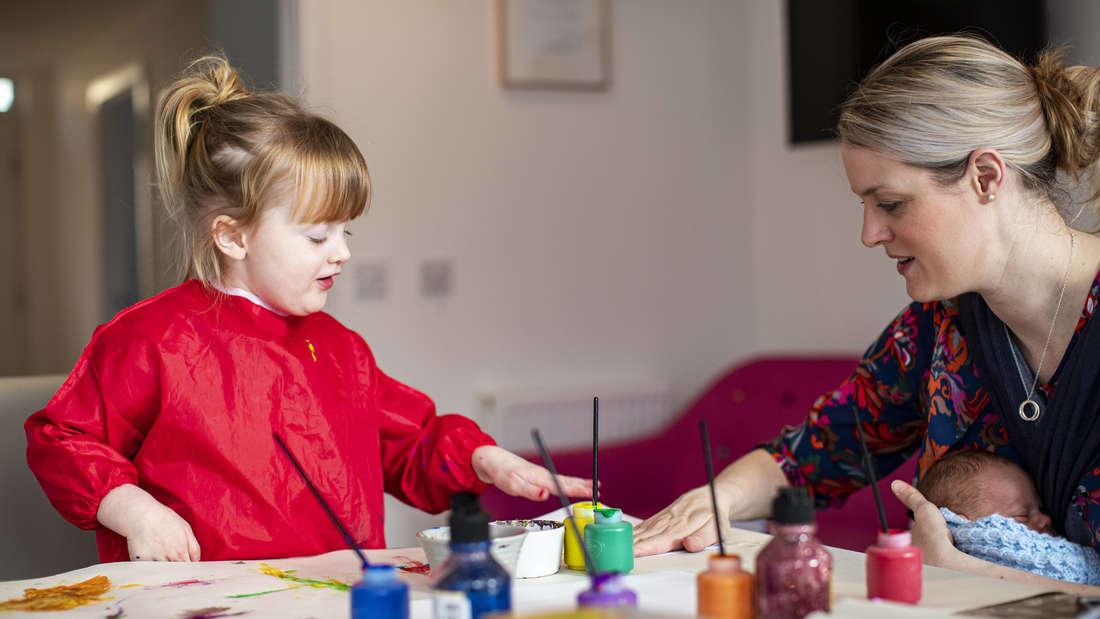
“Super”, “class”, “great”: many parents value praising their children often. But this can be detrimental to the child’s development.
Kassel – “Wow, you did a great job” – parents often hear praise like this one. Whether on the playground, doing handicrafts, or doing well at school, many children are literally overwhelmed with praise from mum and dad. However, this can also have disadvantages for the child, as experts explain.
Because: Not every praise is beneficial. As the Dutch psychologist Eddie Brummelman observed in a long-term study, excessive praise can be a possible reason for the child to develop narcissistic sides. What is meant by this, however, is not the amount of recognition expressed, but rather the manner in which it is given.
Praise for the children: Parents often do this wrong
When praising mistakes can therefore be made, which can damage the child in personality development enormously. Exaggerated and superficial praise, for example, can increase the child’s expectation pressure rather than boosting self-esteem. This was also emphasized by the psychologist Johanna Graf, co-founder of the Nuremberg Institute for Strengthening Educational Competence, in an interview with Die Zeit .
Regarding the appreciation after a good school grade, she explained: “Excessive praise and praise that refers to the person’s abilities does not lead to inflated self-esteem in most people, but to enormous pressure of expectation. A lower grade is then experienced as a personal failure.” A more appropriate reaction is to praise the effort behind it. According to Graf, you can say, for example: “I’m happy for you, I saw how much you practiced.” But the zeitgeist also has an impact on the development of children: according to a psychologist, they are becoming increasingly unhappy.
According to Graf, however, it is unnecessary to praise the child for every swing on the playground. What the child needs from the parents at this moment is only the attention. “Look him in the eye and you will see his joy and rejoice with him. The child notices that,” said the psychologist.
Targeted praise or misbehavior of the child? What consequences does that have
Some parents also follow this pattern: positive behavior of the child is praised, misbehavior is punished. However, according to Graf, this approach to education is absolutely not appropriate. “One way or the other is manipulation,” she explained. “There is a reward for good behavior and a punishment for bad behavior. Like circus monkeys.”
Finally, both techniques are used to show the child that parental affection and love are conditional. In order to make mum and dad proud and happy, “it will try to behave ‘right’ as often as possible,” as the psychologist explains. Ultimately, this can lead to the child’s behavior mainly trying to meet the expectations of others.
Avoid over-appreciation: How to praise your children correctly
Now you’re wondering what’s the best way to go about praising children next? As the portal familie.de writes, three points play an important role:
- Honesty and credibility: Despite having little life experience, children have a sense of whether recognition is genuine or not. If it is not meant honestly, the praise loses its positive effect.
- Precision: mere slogans such as “great”, “bravo” or “well done” are intended to express the enthusiasm of the parents, but the child does not know what was specifically praised. Therefore, it helps to refine the praise by going into details. Instead of simply saying “that’s a nice picture”, for example, sentences like “you chose the colors well.” are more suitable.
- Praise effort instead of ability: In many cases, it is emphasized that a child has done something very well, for example got a good grade or made something nice. But instead of praising the ability, parents should mention the effort behind it. This increases motivation. An example sentence is: “You really tried.”
Praise is important to children, and it should be given when the situation is appropriate. However, it is not essential. According to Graf, “praise is like fertilizer – a nice addition.” But in order for children to be able to develop optimally, they first and foremost need “time, attention and tenderness”. (asc)




